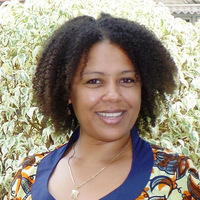
Dr Adelina Mensah – Ghana
Project: Enabling Science-Policy Interface for Knowledge transfer (ESPIK) between scientific community and policy makers for achieving SDG11 in Ghana
The Sustainable Development Goal 11 is an urban specific goal which seeks to “”make cities and human settlements inclusive, safe, resilient and sustainable””. In developing countries where larger cities face rapid population growth and inadequate essential services such as water, sanitation, housing, electricity, transport, etc., there is the need for accessible, accurate, timely and comparable data for effective decision making. Real-time information is essential for monitoring and tracking progress as well as empowering citizens in their participation in policy and planning processes.
In Ghana, several local and international agencies are already involved in data generation and management processes, although there are challenges in the use of this information due to lack of standardized or harmonized data, large data gaps, or data types being influenced by individual mandates or priorities. Although there is a concerted effort towards improving data collection and management by national agencies such as the Ghana Statistical Services, there is still limited understanding on the best approaches for increasing access to and use of data by key institutions in various sectors. Currently, the applicant for this call is a co-lead of the SCiLeD project (Standardising City-Level Data-Gathering towards Achieving Sustainable Development Goal 11 in Africa, a beneficiary of 2018 LIRA – Leading Integrated Research for Agenda 2030 in Africa – being funded by International Science Council), that is investigating how city-level data can be standardized for the city of Accra with plans to develop an open data portal as an innovative mechanism for sharing information. However, there is the need for further research to identify various mechanisms of sharing data with urban planners and decision makers, assess the most appropriate and effective options, and explore innovative opportunities for optimal uptake and use.
The Enabling Science-Policy Interface for Knowledge transfer (ESPIK) project therefore aims to identify existing science-policy mechanisms through transdisciplinary engagement processes with key actors, state and non-state institutions and organizations mandated with the provision of information, science advisory services or institutions dealing with SDG related issues, and projects and programs (including the production and dissemination of targeted evidence syntheses). Based on co-developed criteria, ESPIK will assess how existing collaborative structures with similar mandates promote or hinder effective delivery information sharing and management. Using participatory and knowledge brokering processes, ESPIK will also explore the best scenarios for producing effective science-policy and practice outcomes in addressing issues relating to the achievement SDG11 in Ghana. By investigating the barriers to institutional adoption of the science-policy mechanism in Ghana, the ESPIK research will generate a new knowledge on the best mechanisms for the promotion of research uptake into policy and practice through improved collaborations that foster better partnerships for the overall achievement of the SDGs. Findings of the research will be shared through:
• User-friendly formats such as infographics and policy briefs, as well as more technical and academic outputs of a journal paper;
• Websites of affiliated institutions including the Urban Lab proposed by the SCiLeD project; and
• Presentations, both nationally and internationally

